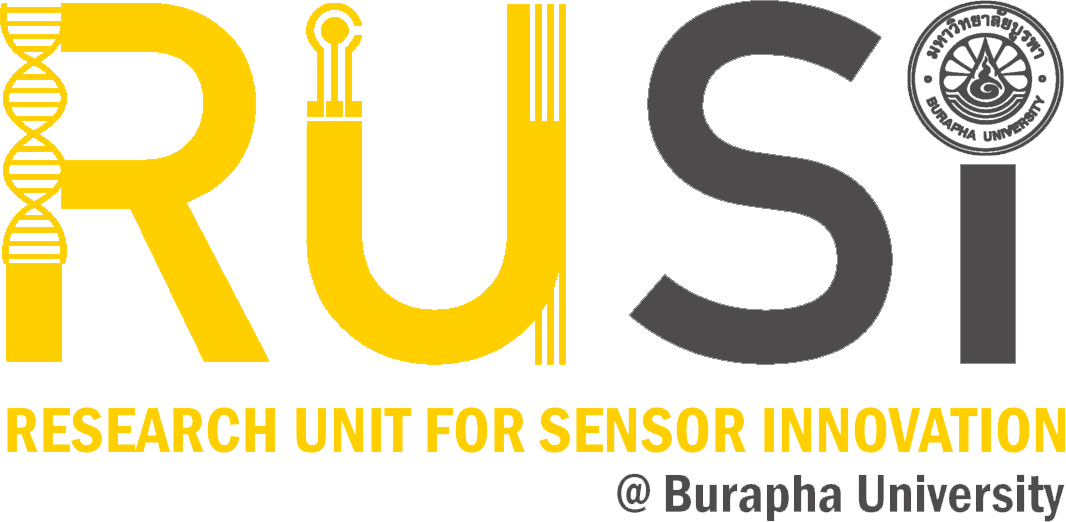
Our expertise
The Research Unit for Sensor Innovation at Burapha University was established through the collaboration between young researchers from the Faculty of Science and the Faculty of Allied Health Sciences. Our center specializes in the development and production of detection kits. We develop testing methods in both chemistry and biology using chemical, nano-chemistry and polymer technologies for applications in food, environment, and medicine. Our achievements include the development of formalin detection kit, Vibrio parahaemolyticus detection kit, and magnetic beads for DNA extraction. With our expertise, we also offer consultations and services related to research and development of diagnostic kits and methods for analyzing contaminants.
History
In late 2017, Burapha University was funded by the Innovation Hubs project (the ageing society group) to commence the project entitled “Establishment of GMP (Good Manufacturing Practice) laboratory for the development of high-performance detection kits for chemical and biological contaminants.” In accordance with the objectives of this project, researchers from two disciplines, associated medical sciences and chemistry, collaborated to establish the Research Unit for Sensor Innovation, where their combined expertise was harnessed for the research and development of chemical and biological test kits that meet the international standards. Specifically, their knowledge in chemistry, nanochemistry, polymer chemistry, and biotechnology have brought forth high-quality test kits for applications in food safety, environmental science, and medicine, which in turn provide direct benefits to the academia, innovation sector, local communities, and businesses in EEC. In addition, participation in these projects has helped enhance the competitiveness and visibility of researchers not only in this center, but also in Burapha University and other universities in Eastern Thailand.
Rationale for Establishing
Diagnostic services in the fields of medicine, food safety, and environmental analysis are often inaccessible to the general public due to their heavy reliance on sophisticated instruments and skilled operators. This limited accessibility to diagnostic testing poses direct and indirect challenges to public health, as delays in diagnosis also delay treatment. Therefore, there is a growing interest in developing innovative diagnostic technologies and test kits that are rapid, user-friendly, cost-effective, and accessible to the general public, with the ultimate goal of facilitating timely diagnosis, monitoring, and management of health.
Recently, Burapha University has initiated the collaboration between young researchers specializing in the development of diagnostic kits from the Department of Associated Medical Sciences at the Faculty of Allied Health Sciences and the Department of Chemistry at the Faculty of Science. For the purpose of establishing a standardized laboratory for research and development of diagnostics, the university was funded through the project “Establishment of GMP (Good Manufacturing Practice) laboratory for the development of high-performance detection kits for chemical and biological contaminants” by Innovation Hubs-Ageing Society, in alignment with the Thailand 4.0 policy pertaining ageing society. The standardized laboratory is currently under construction, and upon its completion, is expected to be an important asset in the broader ecosystem for the production of rapid and affordable kits in Eastern Thailand. Aside from conducting research, the laboratory will also serve as an important hub providing services and consultations to interested organizations and individuals.
The current design of our standardized laboratory includes separate facilities for the development of chemical and biological diagnostic kits. The details are as follows.
- Laboratory for chemical diagnostics. We are currently developing a paper-based microfluidic kit for formaldehyde detection using either inkjet printing or reagent dispenser for fabrication. This platform was designed to produce unique, unambiguous readouts: in lieu of color intensity, the presence of formalin is determined by measuring the diameter of the colorized sample spot, thus removing the interference caused by the color of the sample. The procedure used to create these strips is also affordable, amenable to large-scale manufacturing, and highly modular. By changing the detection reagents to those targeting other compounds, our fabrication process can be readily adapted for the detection of various food safety-related substances, including pesticides, red meat additives, and antifungals, etc.
- Laboratory for biological diagnostics. We are currently developing a rapid detection kit for Vibrio parahaemolyticus, a species of virulent bacteria responsible for food-borne illnesses. The workflow combines magnetic separation of DNA and lateral flow detection, providing unique advantages that include: Magnetic beads capture the genomic DNA of the target species but not others, contributing to the overall specificity of the assay. This also increases the concentration of available DNA, obviating the need for time-consuming enrichment of bacteria. The results can be easily interpreted alongside a glucose meter, providing a user-friendly approach. The method eliminates the requirement for costly laboratory equipment and tools, making it a quick and straightforward process. The test kit serves as an efficient tool for screening bacterial contamination and can be conveniently portable, enabling on-site measurements in the field.
In addition to showing promising results in laboratory settings, diagnostic methods for medical, food safety, and environmental applications must undergo certification before they can be commercialized. For instance, medical devices must be certified according to the ISO 13485 standard, while detection kits for food safety and environmental purposes must be approved by FDA Thailand. Therefore, there is an urgent need for standardized facilities capable of preparing diagnostic products that meet certification requirements. It is for this reason that we have dedicated ourselves to ensuring that our standardized laboratory is equipped to produce of high-quality diagnostic kits and provide support to researchers who share the same goal. Currently, the quality management system (ISO9001:2015) has been certified.
Objectives and scope
- To establish a standardized laboratory for the production of diagnostic kits for medical, food safety, and environmental purposes that meet domestic and international standards.
- To develop a quality management system that meets the ISO 9001 standard, which will help guarantee the quality of detection kits produced in this laboratory.
- To develop and produce detection kits for formalin, pathogenic bacteria, and related applications
- To function as an incubator for businesses related to diagnostic kits, and to register a startup company under the name Innosens 2021 Co., Ltd.
- To assist researchers and business owners from Eastern provinces and nearby regions in the production of diagnostic kits that are ready for certification.
- To disseminate knowledge and serve as a field trip destination for researchers, students, and business owners interested in the production of diagnostic kits
Collaborations
- Bioentist Co., Ltd. (Magnetic beads for DNA/RNA extraction)
In collaboration with BioEntist Co., Ltd., our center has successfully developed a method for preparing magnetic beads used in DNA/RNA extraction. This product serves as an affordable alternative, domestically produced, suitable for various applications that demand magnetic beads.
Expected achievement: The project is currently in the Method Validation stage and is expected to conclude in March 2024. Upon completion, the technology can be transferred to BioEntist Co., Ltd.
- Halla Food (Thailand Co., Ltd.) (Formalin test kits)
In collaboration with Halla Food, our center has developed formalin test kits for practical applications, including detecting formalin contamination in food, ensuring the safety of raw ingredients sourced from suppliers, and evaluating the safety of food products before export. In addition to research, we have actively collaborated with Halla Food on market validation to ensure that our test kits deliver satisfactory performance in real settings and meet the needs of potential users.
Expected achievement: The research project has been successfully completed as a product, technology can be transferred to Hala Food Co., Ltd. Currently, the technology has been transferred to Innosens 2021 Co., Ltd. for commercial production and distribution.
- Sansuk Municipality, Chonburi Province (Formalin test kits and Vibrio detection kit)
As part of the project “Management of sanitation standards for fishing port,” we collaborated with the Sansuk Municipality to organize a practical workshop on the use of formalin and Vibrio test kits for seafood assessment. The participants, including workshop attendees and local fishermen, had an opportunity to experience both previous and updated prototypes of our formalin and Vibrio parahaemolyticus test kits.
Currently, additional test kits including chloride/water-hardness test kits and pesticide test kits for dried food have been introduced to conduct training sessions for Saen Suk municipal officials, stakeholders, and the general public.
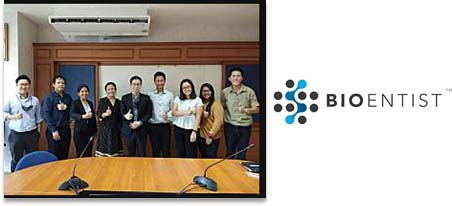
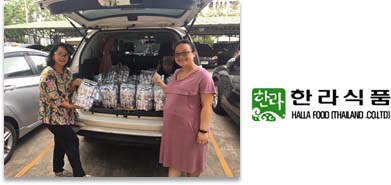
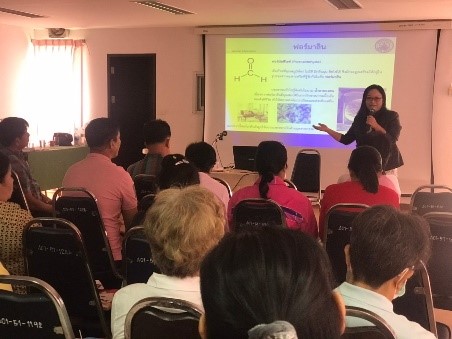
Products and Services with International Standards
ISO 9001:2015 (Quality Management System) Scope: TEST KIT, DIAGNOSTIC DEVICES, RAW MATERIALS FOR CHEMICAL AND BIOCHEMICAL ANALYSIS
Organizational chart
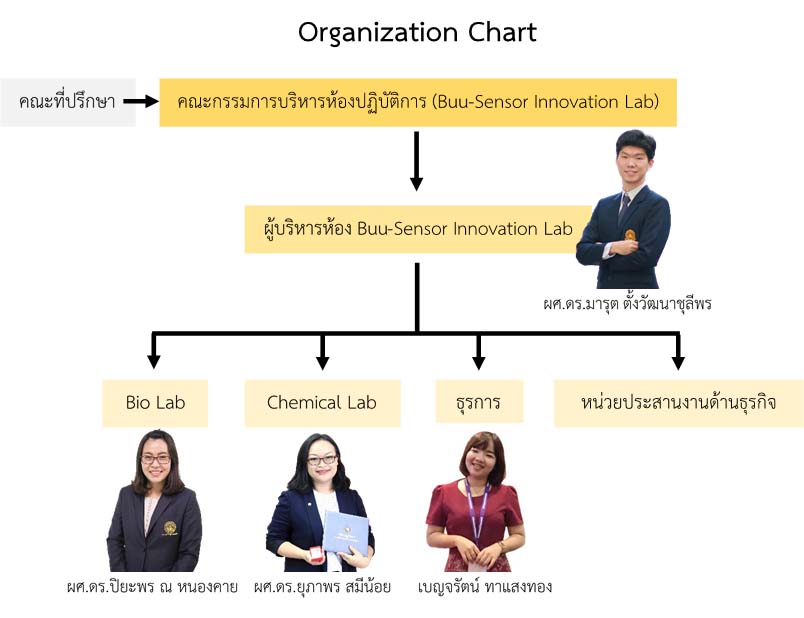
Products and Innovation
DNA/RNA Extraction Kits
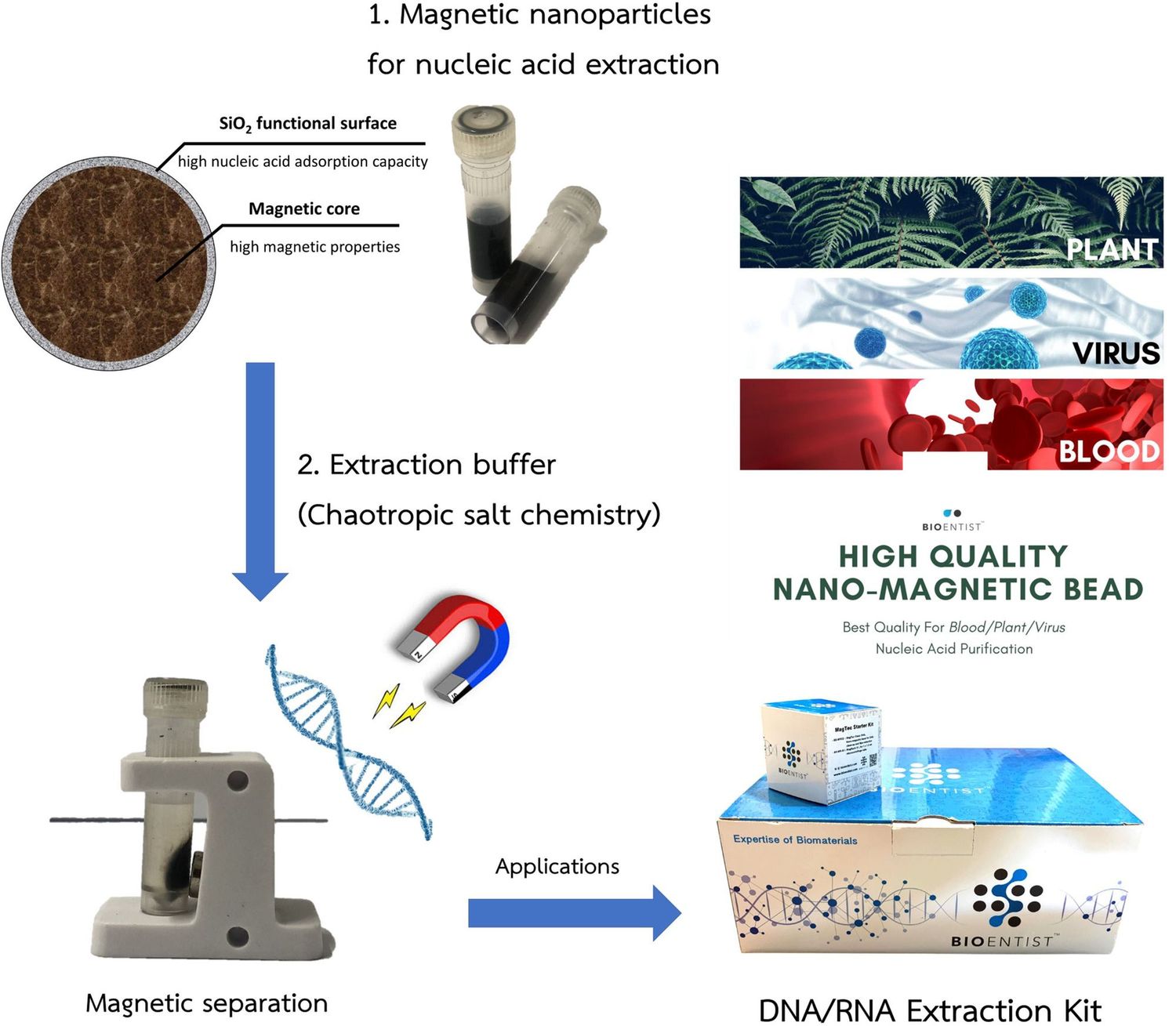
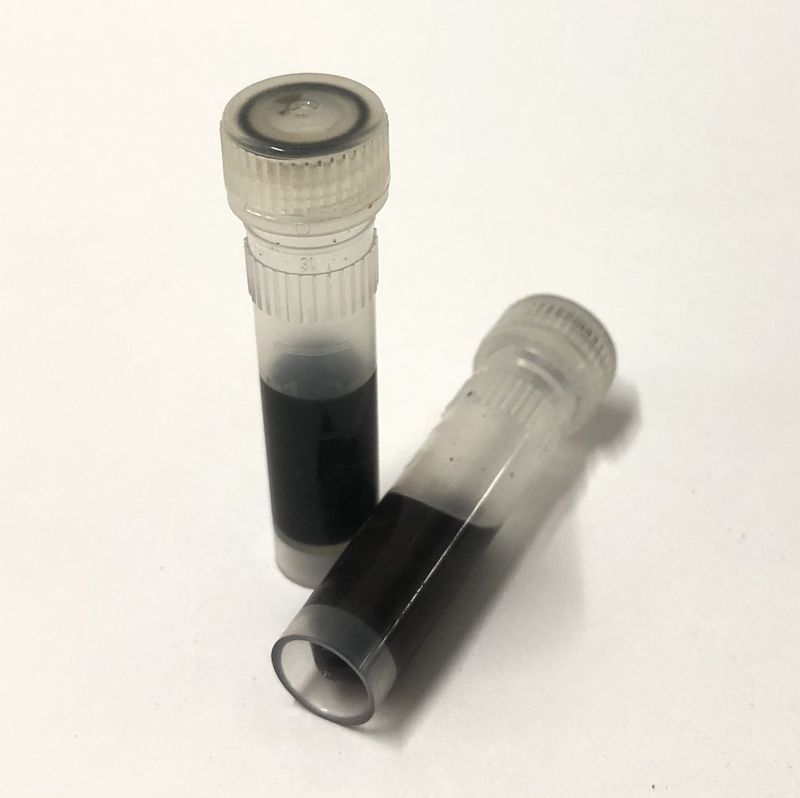
Our magnetic bead-based kit, coupled with an advanced buffer solution, enables the extraction of DNA/RNA. This kit is compatible with both manual and automated magnetic separation systems. Notably, our kit offers a cost-effective alternative to imported equivalents, without compromising on efficiency. We are currently engaged in discussions with BioEntist Co., Ltd. regarding the commercial benefits.
Formalin Test Kits
The formalin test kit is suitable for detection of formalin contamination in fresh food (meat, vegetables, and fruits). The test kit provides rapid analysis and is simple to use by only dropping the sample solution obtained from the reaction vial onto the portable paper-based device to allow the reaction. After 5 min, the test result can be read from appearance color diameter compared to the scale indicated on the device to see if the tested food is safe.
Advantages
- Hight performance with 100% sensitivity & specificity
- Easy to use & Rapid analysis within 5 minutes
- Can test both pieces and solution samples
- No food background interferences
- Portable to use on-site for screening test
- Cheapest formalin test in the market
Application: Formalin food safety screening
The technology transfer is currently underway to InnoSens 2021 Co., Ltd., a spinoff company founded by students from the RUSI research unit, for the production and commercialization of the developed technology.
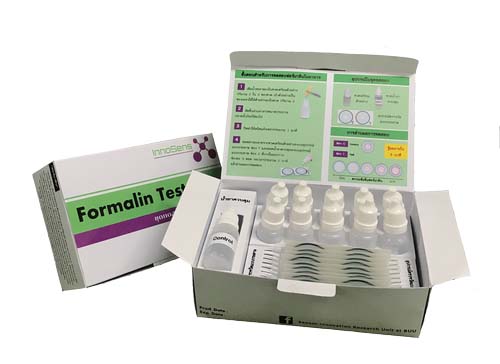
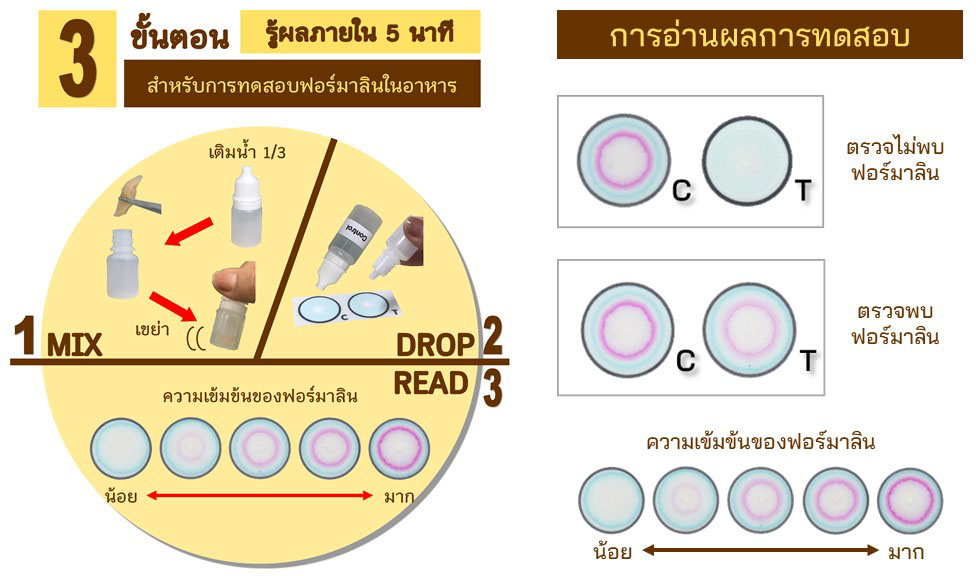
Vibrio Test Kits
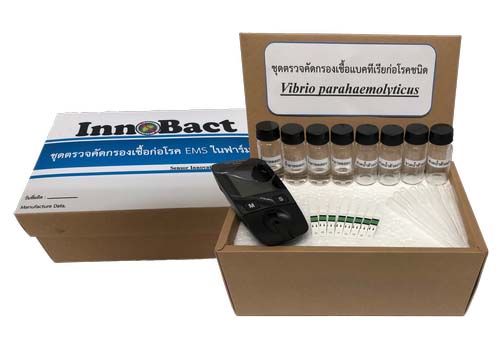
The Vibrio Test Kit was specifically designed for easy screening of Vibrio spp. contaminated in food. The procedure involves cultivating the target bacteria in a specialized medium containing glucose, followed by measuring the remaining unconsumed glucose using a glucometer. Our kits provide a significantly shorter assay time (6-18 hours from sample to answer), surpassing the traditional culture method.
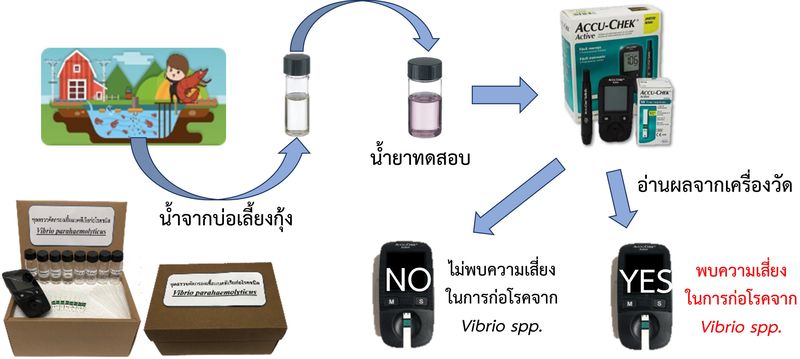
Plant Probiotics for Durian Orchards
Our probiotics enhance durian growth by regulating germination, inhibiting the spread of fungal mycelia responsible for diseases in durian trees, and restoring soil quality. In turn, these benefits lead to cost savings in durian cultivation, shorter time to harvest, improved productivity and increased competitive advantage. The prototype is currently being developed.
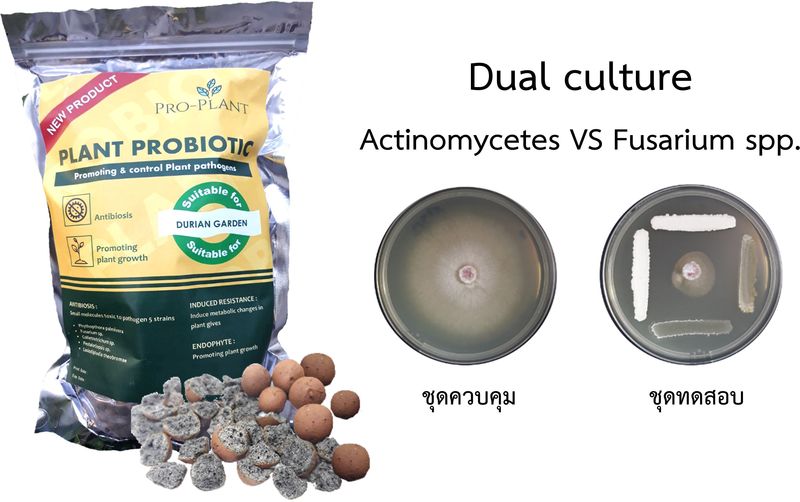
Service
Food safety assessment of seafood sold at local markets
A notable example of services in this category is the onsite testing of formalin and Vibrio bacteria in seafood sold by local fishermen in the vicinity of Wonnapha Beach and Bangsaen Beach. The purpose was to showcase that the locally sold seafood was safe to consume, free from chemical and biological contaminants, which would instill confidence in consumers and increase the value of seafood sold in these neighborhoods.
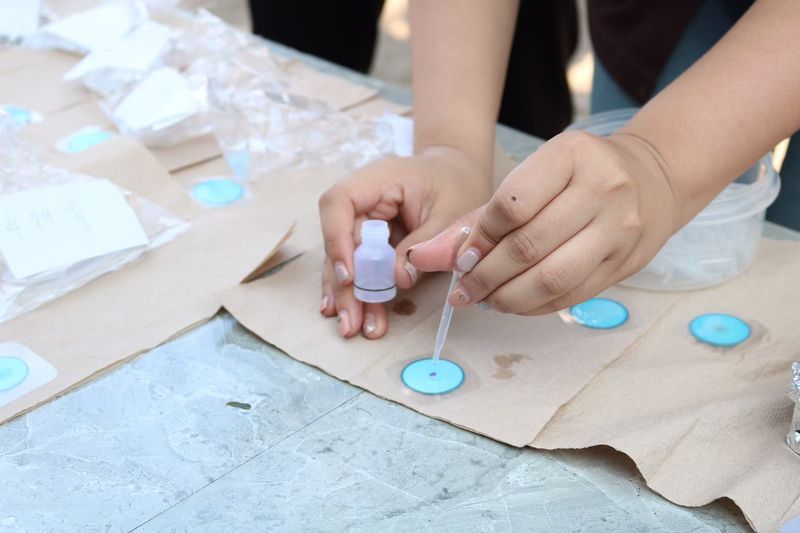
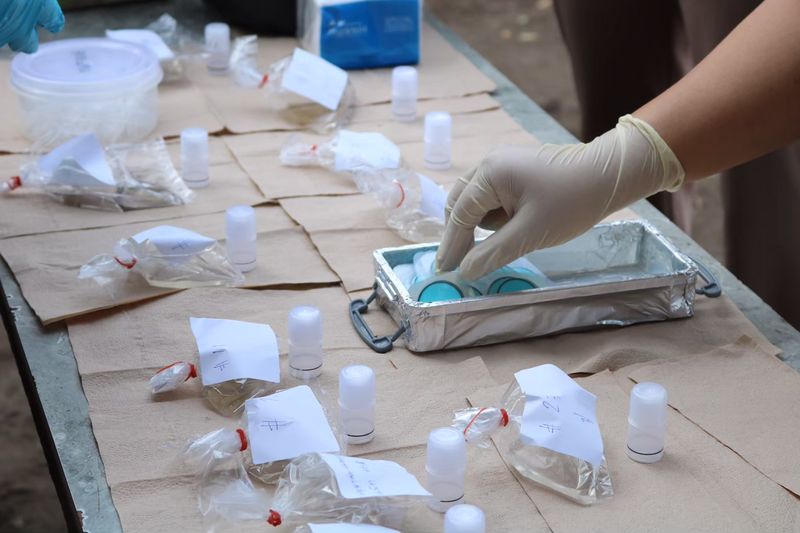
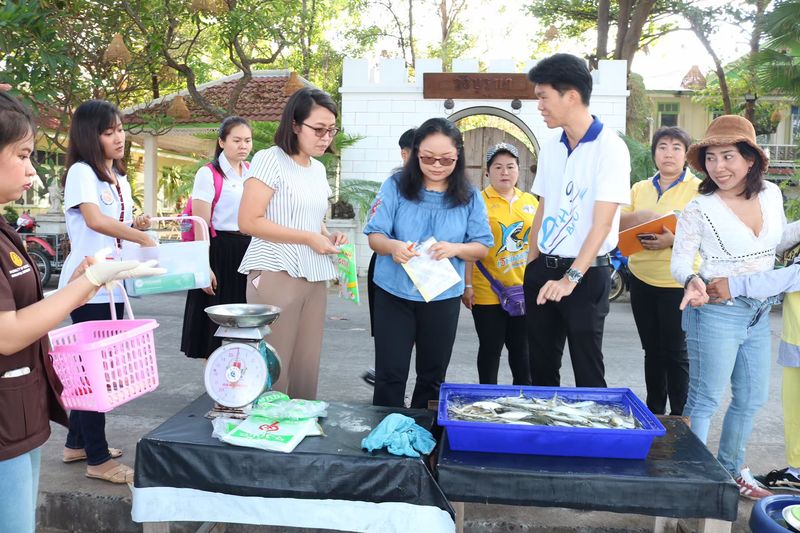
Furthermore, we developed a smartphone-based tracking and reporting system for monitoring the levels of formalin in seafood sold in the Sansuk Municipality. This project has been a collaborative effort involving four key stakeholders: researchers from the Faculty of Science and Faculty of Allied Health Sciences, Burapha University; developers of the mobile application and web application (https://www.safefood-avenue.com/) from the Faculty of Informatics, Burapha University; food safety inspection team from the Sansuk Municipality; and business owners within area. Through this smart platform, tourists can access the list of vendors that have passed the inspections and make informed decisions regarding where to purchase food. Business owners can also use the portal to arrange for food safety inspections. The positive impact of our system on this community, therefore, is expected to be far-reaching, including enhancing the community’s reputation, boosting the values of local products, instilling confidence in customers regarding the safety of food items in the area, and generating more revenues for the local community and neighboring areas. Importantly, the integration of a smart reporting system into the local lifestyle is an important milestone towards to becoming a “smart city,” a designation that has the potential to greatly boost the tourism economy. Finally, it should be noted that the benefits of our system extend beyond the Sansuk municipality, as the framework established can be adapted to fit the unique needs of other communities as well.
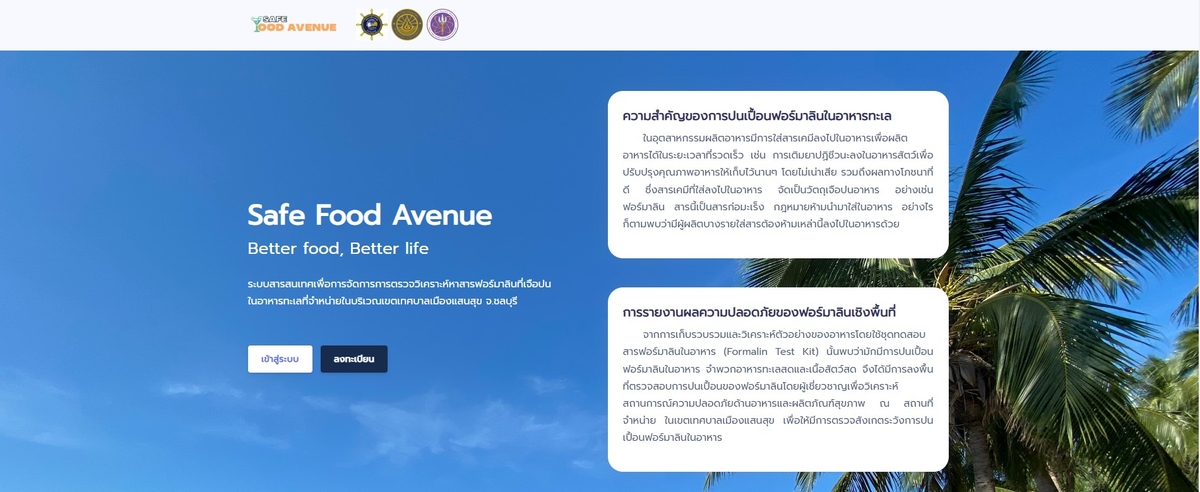
Consultations and services related to research and development of chemical and biological diagnostic kits.
Organization of workshops on related topics, such as “Hands-on workshop on the diagnosis of emerging and re-emerging diseases in ECC using cutting-edge laboratory methods.”
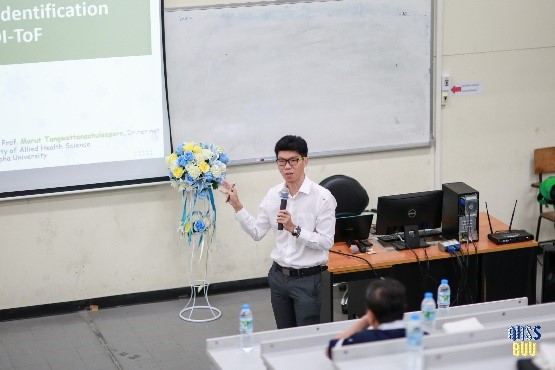
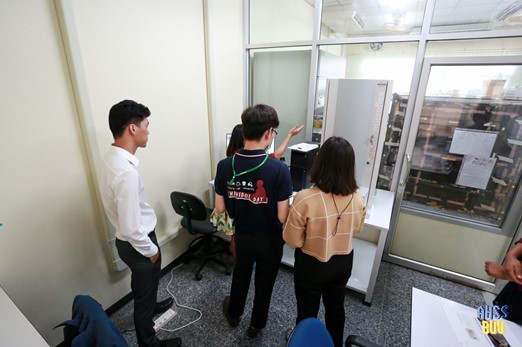
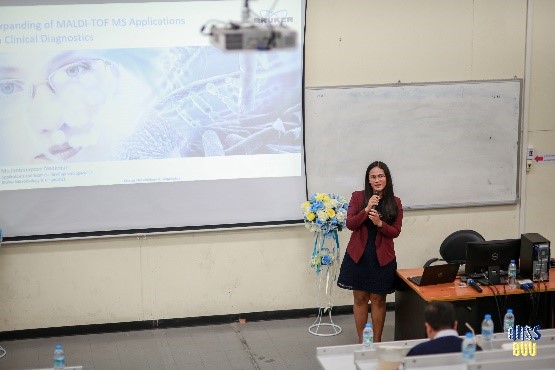
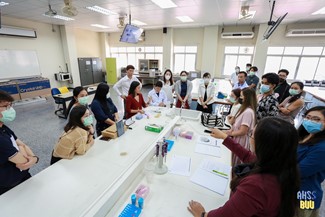
Construction of diagnostic prototypes
Construction of diagnostic prototypes for food safety, medical, and environmental applications in a standardized clean room
Rental laboratory space
We offer rental laboratory space that meets the standards for production of commercial diagnostic kits.
Our expertise
Development of diagnostic kits using techniques in chemistry
Equipment and Facilities
- MALDI-ToF Biotyper for bacterial identification
- Diagnostic kit assembly system, consisting of:
- Dispensing platform for depositing reagents on lateral flow strips, suitable for use in both laboratories and large-scale manufacturing systems
- Strip cutter, equipped with a durable blade capable of cutting over a million strips before requiring sharpening.
- Qubit 4 Fluorometer, the most accurate platform for nucleic acids quantification. Besides DNA and RNA, the instrument can also be used to quantify proteins.
- Zetasizer, an instrument for measuring particle size, zeta potential, and molecular weight
Room
- Clean Room Class 100,000 (Grade D)
- Clean Room Class 100,000 (M6.5): > 0.5 micron particles, below 3,530,000 particles per cubic meter (100,000 particles per cubic feet)
Contact
Research Unit for Sensor Innovation at BUU
5th Floor Bio Science Building, Faculty of Science, Burapha University
169 Long Had Bangsaen Road, Tambon Saensuk, Amphoe Mueang, Chonburi Province 20131
